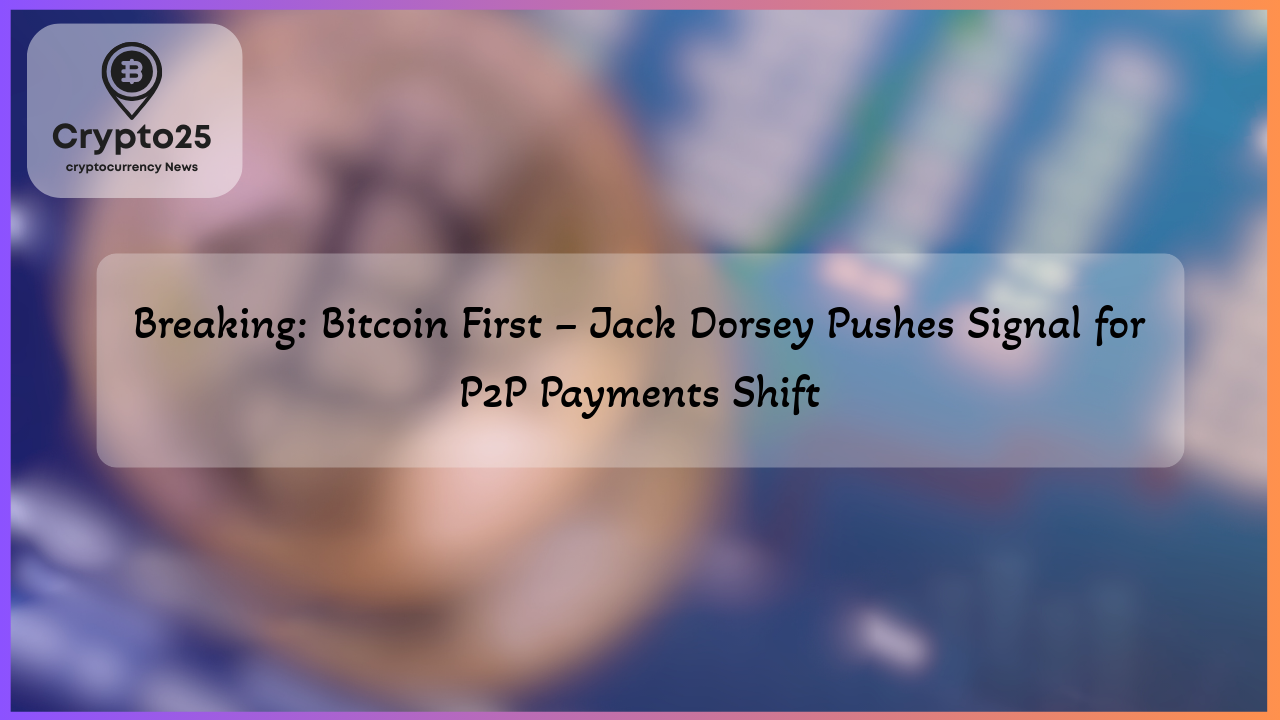
Cryptocurrency adoption continues to evolve as major industry players advocate for seamless integration into everyday platforms and payment systems. Jack Dorsey, former Twitter CEO, recently called for Bitcoin to be embedded into Signal as a peer-to-peer (P2P) payment system, amplifying discussions on BTC’s utility. With voices from influential figures intensifying around Bitcoin’s usability, the conversation surrounding its role as a payment tool has reached a global stage.
### The Push for Bitcoin as More Than Digital Gold
Bitcoin advocates are increasingly voicing their desire to reposition BTC from being seen merely as “digital gold” to becoming a practical payment tool for global transactions. Jack Dorsey, known for championing Bitcoin through his financial services company Block (formerly Square), stressed the importance of BTC’s utility in real-world payments. On April 9, Dorsey responded to a Bitcoin developer on social media, suggesting Signal, an encrypted messaging app, adopt Bitcoin for P2P transactions. This viewpoint was seconded by David Marcus, CEO of Lightspark, who remarked that all “non-transactional apps” should leverage Bitcoin as a standard for financial communication.
Signal, well-known for its security-focused messaging platform launched in 2014, had already taken a step into the crypto payments sector. In recent years, it introduced in-app payments through Sentz, a rebranded form of MobileCoin (MTCN). Despite being a privacy-oriented ERC-20 token backed by industry giants like Coinbase Ventures, this move sparked controversy surrounding the project’s transparency and financial credibility. Critics accused the Signal team of potential conflicts of interest, particularly due to irregular token price movements prior to its launch. Bitcoin’s advocates, however, argue that integrating BTC could provide a more decentralized, secure, and universally accepted payment alternative.
### Growing Venture Capital Interest in Crypto-Payment Ecosystems
Fueling the conversation is a significant surge in venture capital investment within the crypto and blockchain-based payment sphere. In March, RedotPay secured $40 million in a Series A funding round led by Lightspeed, with involvement from prominent backers like Galaxy Ventures and DST Global Partners. This follows Mesh’s remarkable Series B funding, where the crypto settlement network raised $82 million with support from Paradigm and ConsenSys.
Such developments highlight the funding community’s recognition of blockchain as a key driver of financial innovation. Additionally, companies are increasingly utilizing stablecoins for payments, with RedotPay partially finalizing its investments using PYUSD, PayPal’s stablecoin. These trends illustrate growing faith in digital currencies to reshape global financial transactions, a sentiment echoed by Stripe’s acquisition of blockchain firm Bridge for $1.1 billion last year. The deal reinforced the payments giant’s commitment to blockchain integration, underscoring the growing trust institutional players have in crypto-backed infrastructure.
Cryptocurrency payment ecosystems are also experiencing broader mainstream adoption. For instance, Singapore-based Triple-A, which specializes in crypto-based payment solutions, recently announced plans to support PayPal’s PYUSD stablecoin. These developments suggest stablecoins, alongside Bitcoin, are poised to further disrupt traditional financial systems by ensuring faster, more transparent, and cost-effective transaction solutions.
### Why Signal and Other Platforms Should Consider Bitcoin Integration
Despite Bitcoin’s origin as a peer-to-peer cash system, many tech and communication platforms have opted for altcoins or proprietary token systems instead of embracing BTC. Telegram, for example, has been a vocal supporter of Toncoin. Meanwhile, Elon Musk’s platform, X, has consistently dodged speculation of launching a native token, with Musk denying intentions to integrate cryptocurrencies directly.
Bitcoin’s inclusion in platforms like Signal holds transformative potential. By adopting Lightning Network–Bitcoin’s second-layer solution designed for instantaneous microtransactions—Signal could harness decentralized infrastructure for global payments with minimal fees. Unlike MobileCoin, Bitcoin offers unmatched transparency, near-universal acceptance, and decades of credibility as the first-mover in the cryptocurrency space.
Dorsey’s public call to action and the subsequent industry response underline a critical shift in perspective. Bitcoin continues to evolve beyond its role as a digital asset for investment portfolios or value storage, positioning itself as a viable alternative in the payment sector.
| Title | Details |
|---|---|
| Market Cap | $1.2 Trillion |
### The Road Ahead for Bitcoin as a Payment Standard
As venture capitalists double down on blockchain-based payment firms and industry pioneers advocate for Bitcoin adoption, the path forward appears promising for BTC’s utility as a transactional asset. While competition from altcoins and stablecoins remains fierce, Bitcoin’s decentralized foundation and global recognition make it a pivotal player for platforms like Signal. Should Signal adopt Bitcoin or its Lightning Network, it would set a precedent for other communication and tech platforms to consider the cryptocurrency as a reliable financial tool.
